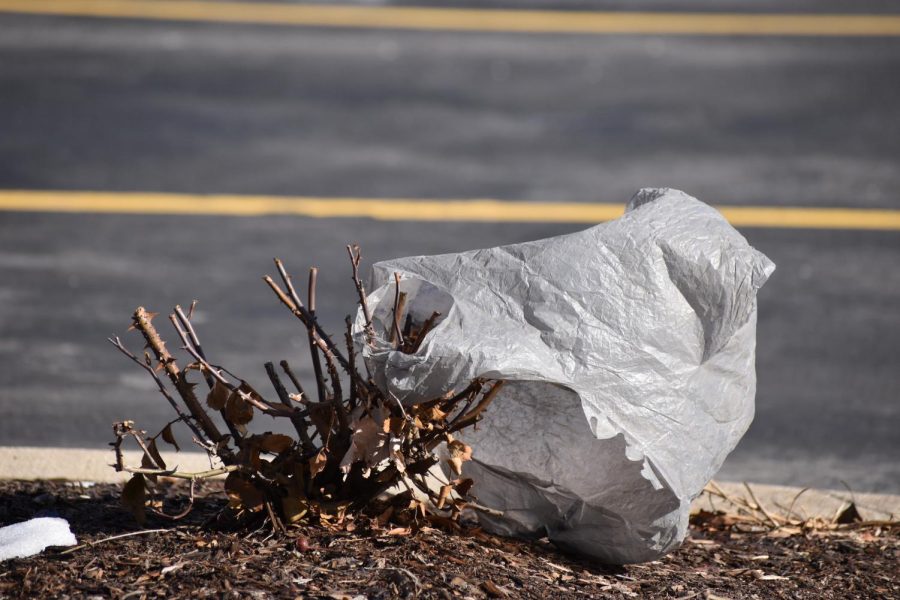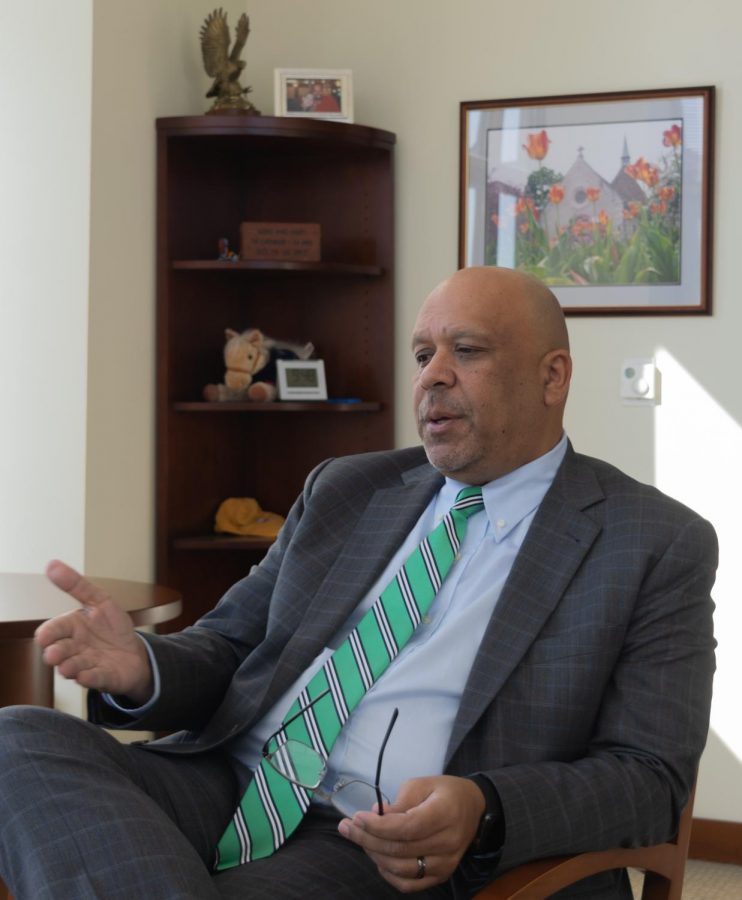Walking through the center of Marquette University on Wisconsin Avenue, buildings flank each side of the street. Cars rush by down the road, and construction can be found without walking far in any direction. All of these factors contribute to the first impression of Marquette’s sustainability efforts and are just a few of the elements considered when determining Marquette’s level of sustainability.
Marquette University testifies to its environmental efforts by joining organizations and signing pledges dedicated to sustainability. In 2015, Marquette University President Michael Lovell signed the St. Francis/Laudato Si Pledge, a promise geared toward encouraging higher institutions to bridge the gap between religion and the environment.
Although President Lovell signed this pledge eight years ago, it was only this year when a task force was implemented to lead efforts to meet the goals set by this pledge, and some students have been left wondering what Marquette has done since then to improve upon sustainability efforts.
Marquette is a member of the Association for the Advancement of Sustainability in Higher Education, an organization that encourages higher institutions to pave the way to a greener campus.
Julian Dautremont, a representative for AASHE, says that the organization uses a tool called STARS to help universities self-report sustainability efforts.
“STARS is a self-assessment tool that universities use to measure and report on their sustainability performance. We look at everything from teaching and research to campus operations. We also look at waste, transportation and engagement of students … affordability and diversity and inclusion issues,” Dautremont says.
Upon completion of the self-assessment submitted in 2021 by Sustainability and Energy Management Coordinator Chelsea Malacara, Marquette was granted a score of 36.76 out of a possible 100 points. This earned the university a bronze star rating, the lowest on the scale. This is a decrease from the 2016 report, where Marquette received 51.6 points and a silver star.
“STARS is flexible, and there are areas where Marquette didn’t provide any information. For example, there is an indicator around how people get to and from campus,” Dautremont says. “It was marked as ‘not pursuing’. So, the university didn’t get any points for that or other parts that weren’t filled.”
In response to this rating, Malacara says that it will be used as a benchmarking tool for improvement.
“When we completed the report, we were able to assess where the gaps were, what projects could be taken on in the short term and what initiatives would be long-term endeavors,” Malacara says.
“Our peer-education team of sustainability interns has done a phenomenal job educating students and encouraging the adoption of more sustainable practices … Marquette also offers sustainability-focused courses in over 15 departments on campus each year. Our faculty are certainly leaders in this area, too, designing interdisciplinary courses that teach practical skills.”
Another member of the task force group is Father James Voiss, vice president of mission and ministry. Voiss says that sustainability is crucial to the mission of the Society of Jesus and Marquette values as a whole.
“Fidelity to our mission requires that we engage the challenges to sustainability and find effective responses to them individually, as a campus, as people of faith and as members of our common human family,” Voiss says.
Although the STARS rating leaves room for improvement, according to Malacara. Marquette has met and exceeded several previously set goals.
“The 2018 campus sustainability plan aimed to reduce carbon dioxide equivalent emissions from heating, cooling and power by 25% from our baseline by 2025. We have effectively surpassed that goal and will be setting new reduction targets this year which will be published in the new strategic plan,” Malacara says.
Allie Plante, a sophomore in the College of Engineering, says that the focus on innovation and awareness in Marquette’s sustainability agenda is, to her, an important part of sustainability efforts. Plante is focusing on environmental engineering and environmental studies, a path she chose after taking environmental classes in high school.
“New implications of technology are very apparent on campus, and it shows that the school cares a lot. But, they’re also tying that into the spreading of awareness to students to the importance of the innovation which I think is just as effective,” Plante says.
She says that Marquette should post about its sustainability goals on social media, creating a way to both educate students and be held accountable.
Plante also says Marquette’s urban geography makes it difficult for the school to incorporate sustainability, but she believes Marquette is doing a good job with the available resources. However, all of the University of Wisconsin schools that participated in the AASHE report received STARS ratings of silver or higher. Even so, Marquette does rank higher in certain parts such as Food & Dining and Diversity & Affordability.
Engagement is an important piece of sustainability, Malacara says, and she encourages students to keep up with the latest information.
“Attend student engagement sessions or provide feedback when the opportunity arises. Second, act with intention in your personal life, academically or inside your social circles,” Malacara says. “When we are intentional about what we consume, how and where we spend our time, we can make choices that are better for us and for the environment.”
Malacara says she also encourages students to speak up and share their ideas.
“Leverage your own talents to make change. If there is something you want to see on campus or in our community, find out who to talk to and be part of that change,” she says. “Some of the best sustainability initiatives and ideas on college campuses across the world were first started by students.”
This article was written by Briana Nelson. She can be reached at briana.nelson@marquette.edu.









